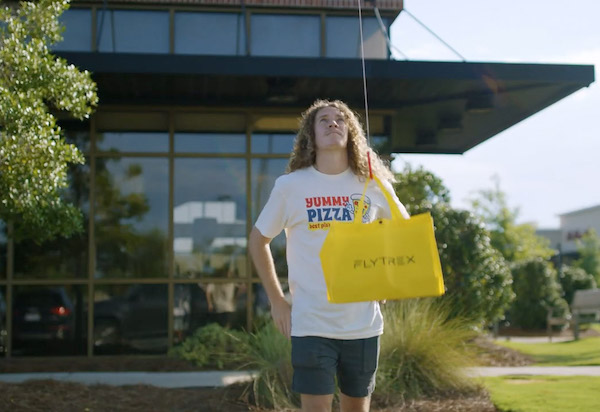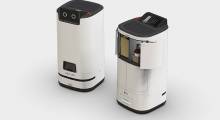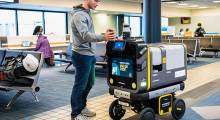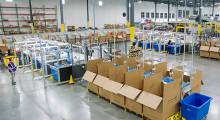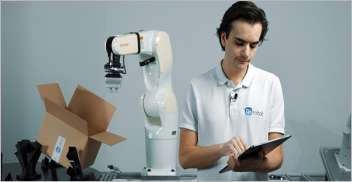Time and convenience are essential for customers of quick-serve restaurants, or QSRs. Tel Aviv, Israel-based Flytrex Inc. today announced Autonomous Pickup. The company said it enables a fully autonomous delivery process—from order placement through pick-up and delivery to customers’ yards.
Flytrex claimed that its new capability can cut delivery times to about five minutes from the time orders are ready, creating growth opportunities for QSRs and family-owned restaurants.
“What’s so unique about this innovation is its real potential to move the needle, with more and more businesses getting on board with an undeniably seamless and cost-effective process,” stated Yariv Bash, co-founder and CEO of Flytrex. “This upgrade is a huge step forward in achieving our vision to provide drone delivery to the millions of residents across suburban America.”
“The end goal is faster and more delivery options than today,” he told Robotics 24/7. “We want to make the process as autonomous as possible, and we've been working on it for five years now.”
Autonomous Pickup to help cheaper deliveries take off
For the past few years, improving technologies such as drones and robotics have made the rapid-delivery business more appealing, said Flytrex. However, the high fees charged by third-party delivery services to both restaurants and their customers have hurt market growth, it observed.
Flytrex said that it can remove this hurdle with more affordable, efficient, and sustainable deliveries. The company offers retailers and restaurants the ability to deliver directly to customers' yards.
“It's all about the balance between cost and efficiency, about optimizing the system's weight for faster delivery service at reasonable pricing,” Bash said. “It doesn't make sense to send a Mercedes to deliver a $5 burrito or a whole truck for one pizza.”
With Autonomous Pickup, Flytrex drones can pick up orders from shops via a dropdown wire. They can then fly directly to customers’ homes to deliver the goods, removing the human component from the delivery process.
“Drones are only 20% of what we do,” noted Bash. “There's also the servers, cloud infrastructure, and operations teams, and everything has to work together.”
Several of Flytrex’s restaurant and retailer affiliates have already realized its vision of a fully autonomous delivery process, including Unilever’s The Ice Cream Shop, Papa Johns, Freddy’s Frozen Custard and Steakburgers, and Little Caesars, among others.
“Our interactions with large chains have been good so far,” said Bash. “We charge them and their customers less than traditional delivery methods and give better service.”
“Ground deliveries may be the way to go for groceries, but if you just need diapers, sunblock, or a few tomatoes for dinner, we provide the unit economics of an e-bike versus that of driving a truck,” he asserted. “We're in talks with retailers [for situations such as] if a customer needs to return a T-shirt.”
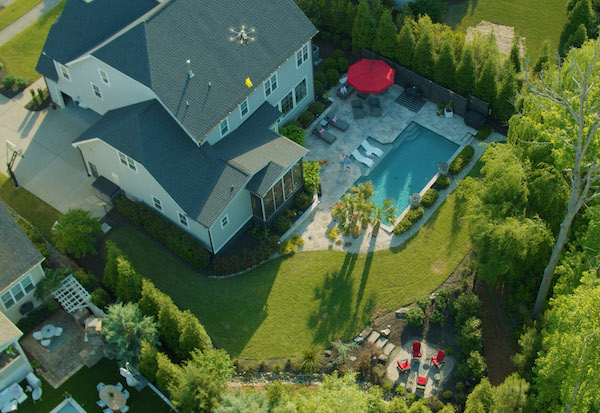
Flytrex continues collaborations, policy work
Since launching what it said was “the world’s first autonomous drone delivery system” in 2017 in Reykjavik, Iceland, Flytrex has worked closely with regulators. The company participated in the Federal Aviation Administration's (FAA's) Uncrewed Aerial System Integration Pilot Program (UAS IPP), which ended in 2020.
“When we saw that the FAA began building a regulatory framework for commercial drone operations, we got involved,” Bash recalled. “It's a marathon, not a sprint, but since we're talking about safety with airplanes, slow was the way to go. We have certifications to fly above highways, roads, and houses.”
Flytrex has also participated in the FAA's BEYOND initiative. The company said it operates the largest backyard drone-delivery service in the U.S., with delivery stations in North Carolina and Texas operating daily.
Through the expansion of its services in 2022, Flytrex said its customer base has grown from 40,000 eligible customers to 95,000 – a 138% increase. The service is fully operational seven days a week and executes hundreds of deliveries a day via drone, said Flytrex.
Will Flytrex expand further geographically?
“We have to mature our system a bit more—we don't want to open 100 stations and lose money; we want to make hundreds of deliveries daily and make a profit,” Bash told Robotics 24/7. “By the middle of next year, we'll scale to a sustainable business based on unit economics. It's a problem often encountered by restaurant and delivery robotics.”
In January, the FAA granted Flytrex partner Causey Aviation Unmanned a Standard Part 135 Air Carrier Certification, allowing it to conduct long-range, on-demand commercial drone deliveries in the U.S.
About the Author
Follow Robotics 24/7 on Linkedin
Article topics
Email Sign Up

